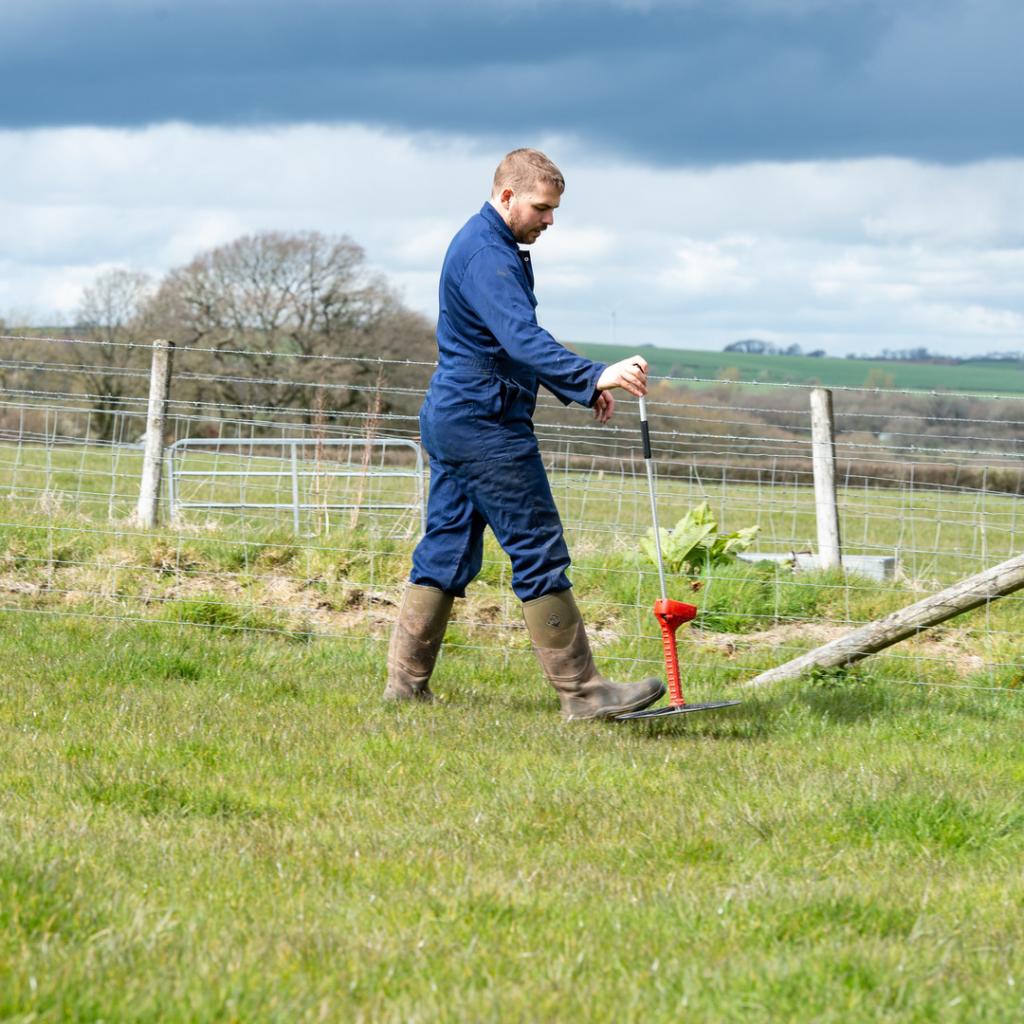The big picture: using wildflower strips for pest control
A new study has suggested that British livestock farmers could save time and money by adopting a simplified method of measuring grass growth, without compromising the quality of the data they rely on to manage their herds.
Researchers at the North Wyke Farm Platform in Devon tested a streamlined approach to monitoring pasture, known as a “pasture walk”, which involves measuring herbage mass along a single diagonal line across a field rather than the traditional W-shaped transect.

The findings, published this week, show that the shortcut reduced labour by more than half — requiring just 1.2 minutes per hectare compared with 2.5 minutes — while producing similar results. The average difference between the two methods was just 106 kg of dry matter per hectare, far too small to affect grazing decisions.
Pasture utilisation is a key driver of efficiency in grass-based livestock systems, but regular monitoring of grass growth is rare on commercial farms, largely because of the time commitment involved. The researchers argue that the simplified protocol could make routine measurement more attractive, helping farmers to adopt evidence-based grazing strategies that improve profitability and sustainability.
“Even imperfect data is better than none,” the study notes, highlighting earlier evidence that regular grass measurement can boost farm performance even when the figures are not entirely precise.
The Devon trials suggest that the diagonal method could be applied across a range of field sizes and shapes throughout the growing season, potentially transforming pasture management on UK farms.
Livestock Experimental Manager

Farming Footprints and Adaptations Team Leader
Rothamsted Research is the longest-running agricultural research institute in the world. We work from gene to field with a proud history of ground-breaking
discoveries in areas as diverse as crop management, statistical interpretation and soil health. Our founders, in 1843, were the pioneers of modern
agriculture, and we are known for our imaginative science and our collaborative approach to developing innovative farm practice.
Through independent research, we make significant contributions to improving agri-food systems in the UK and internationally, with
economic impact estimated to exceed £3 bn in annual contribution to the UK economy. Our strength lies in our systems approach, which combines strategic research,
interdisciplinary teams and multiple partnerships.
Rothamsted is home to three unique National Bioscience Research Infrastructures which are open to researchers from all over the world:
The Long-Term Experiments,
Rothamsted Insect Survey and the
North Wyke Farm Platform.
We are strategically funded by the Biotechnology and Biological Sciences Research Council (BBSRC), with additional support from other national and
international funding streams, and from industry. We are also supported by the Lawes Agricultural Trust (LAT).
The Biotechnology and Biological Sciences Research Council is part of UK Research and Innovation, a non-departmental public body funded by a grant-in-aid
from the UK government.
BBSRC invests to push back the frontiers of biology and deliver a healthy, prosperous and sustainable future. Through our investments, we build and support a vibrant,
dynamic and inclusive community which delivers ground-breaking discoveries and develops bio-based solutions that contribute to tackling global challenges,
such as sustainable food production, climate change, and healthy ageing.
As part of UK Research and Innovation (UKRI), we not only play a pivotal role in fostering connections that enable the UK’s world-class research and innovation system
to flourish – we also have a responsibility to enable the creation of a research culture that is diverse, resilient, and engaged.
BBSRC proudly forges interdisciplinary collaborations where excellent bioscience has a fundamental role. We pioneer approaches that enhance the equality, diversity,
and inclusion of talent by investing in people, infrastructure, technologies, and partnerships on a global scale.
The Lawes Agricultural Trust, established in 1889 by Sir John Bennet Lawes, supports Rothamsted Research’s national and international agricultural science through the provision of land, facilities and funding. LAT, a charitable trust, owns the estates at Harpenden and Broom's Barn, including many of the buildings used by Rothamsted Research. LAT provides an annual research grant to the Director, accommodation for nearly 200 people, and support for fellowships for young scientists from developing countries. LAT also makes capital grants to help modernise facilities at Rothamsted, or invests in new buildings.